Startups run on speed. One day it’s just an idea, then a pitch deck, then suddenly the money’s there and the pressure to grow kicks in. But once that growth means hiring outside your own country, things slow down.
Hiring someone abroad isn’t as easy as just sending over a contract and shipping them a laptop. Every country has its own set of rules, taxes, payroll, benefits, and even local expectations about work. For a small team, that’s a lot to handle and it can get messy fast.
That’s where Employer of Record (EOR) for Global Hiring steps in. It gives startups a way to bring on people anywhere without setting up a company in every market. It’s faster, safer, and takes the stress out of figuring out international compliance. This post will look at what EOR really means, why more startups are using it, and how it helps them scale globally without losing speed.
What is an Employer of Record (EOR)?
Keep it easy. An employer of EOR is basically a company that acts as an “official” employer for your foreign employees. On paper, Eor is his legal employer. But in practice, you still manage their daily work, determine their goals, and integrate them into your team.
EOR handles the dirty side: Trial release, submission of taxes, employment contracts, contributions from social security, and remains in line with local work rules. You do not need to register a local business, rent lawyers in each market or ins and external learning of complex rules.
For a start-up, this is a big thing. Large companies can have the time and money to open institutions everywhere, but do not do startups. They require flexibility and speed. This is what EOR distributes.
Why Global Hiring is Hard for Startups
The idea of hiring worldwide sounds exciting until you get into the details. Here’s why many founders hit a wall:
- Cost of setting up subsidiaries: Registering a company in a new country isn’t cheap. It often costs thousands of dollars upfront, plus ongoing legal and accounting fees.
- Time delays: Setting up an entity can take months. By the time you’re ready, the candidate you wanted may already be working for someone else.
- Regulations everywhere: Each country has its own rules about minimum wages, work permits, vacation time, and severance pay. Missing a single rule can lead to big fines.
- Risk of misclassification: Hiring someone as a contractor when they should legally be an employee can lead to penalties.
Imagine a startup in London that wants to hire a developer in Brazil. Without an EOR, they’d need to create a Brazilian entity, register for tax, set up payroll systems, and figure out legal compliance all before they even send an offer letter. That’s months of work, when all they wanted was to hire one person.
Benefits of Using EOR for Startups
Speed to Market
The startup is speeding. With an EOR you can hire employees in a new country in weeks, sometimes days, even a unit to open a unit instead of waiting for half a year. For the Mother – i – law Company that monitors Southeast Asia, this speed may be the difference between the first market or arriving late.
Compliance & Risk Reduction
The Employment Act is difficult. What is legal in one country can be sued in another. An EOR takes the start of the burden by securing each stage of contract, profit and salary that completes local laws. They reduce the risk of breaking punishment, disputes or accidentally a rule of work. For example, in Europe, employees are entitled to strong security compared to America. Without local knowledge, a startup can easily be wrong.
Cost Savings
Let’s be blunt: setting up entities is expensive. Between legal fees, HR staff, and ongoing compliance costs, startups can burn through their runway just trying to hire in one country. EOR services are far more cost-effective. They let you test a market first, without committing to all the overhead. A small company might spend tens of thousands creating an entity, while EOR fees are predictable and often much lower.
Access to Global Talent Pool
Talent isn’t limited to one city. Maybe the best developer for your product is in India, or your perfect marketing hire is in Germany. EOR makes it possible to bring them on board without jumping through endless hoops. This opens the door to building truly global teams, something startups couldn’t do easily a decade ago.
Flexibility & Scalability
Startups pivot. They grow fast, sometimes shrink, then grow again. EOR makes it easy to adjust. You can scale up hiring across several markets or reduce headcount if funding slows. No need to worry about closing down entities or exiting a market it’s all handled.
GEO Perspective – How EOR Supports Global Expansion
North America
The United States might be one country, but each state has its own rules for payroll, overtime, and benefits. For startups hiring across borders, it gets even more complex. Canada, for instance, has strict employment standards that vary by province. EORs simplify the patchwork of regulations.
Europe
Europe is known for strong worker protections. From mandatory vacation days to social contributions, startups need to get it right. Add GDPR rules into the mix, and it’s a lot to manage. EORs help startups navigate across multiple EU countries at once, saving both time and stress.
Asia-Pacific
Markets like Singapore and India are magnets for startups. But opening a legal entity there takes time and resources. In China or Japan, the paperwork can stretch even longer. EORs give startups a shortcut to enter APAC markets quickly and hire local talent without delay.
Latin America
Brazil, Mexico, and Colombia are becoming tech hubs. But taxes and labor laws are notoriously complex. For startups, an EOR acts as a safety net handling payroll, taxes, and compliance in a way that avoids costly mistakes.
Middle East & Africa
These are emerging regions with big opportunities, but regulations can be unpredictable. For a startup, figuring out local compliance alone isn’t practical. EOR providers bring clarity and reduce uncertainty, making it possible to explore new markets without taking big risks.
When Should a Startup Use an EOR?
EOR isn’t always the right choice. But it fits perfectly in a few scenarios:
- Early-stage expansion: When you want to test a new market before investing big.
- Rapid scaling: Funded startups that need to hire fast across multiple countries.
- Lean teams: Startups without in-house legal or HR staff.
- One-off hires: If you only need one or two employees in a country, setting up an entity doesn’t make sense.
- Risk management: When compliance or legal risks are too high to handle alone.
If you’re in any of these situations, EOR can be the difference between moving forward or stalling out.
Myths About Employer of Record
There are a few misconceptions floating around about EOR:
- “It’s only for big companies.” Not true. Startups actually benefit more, since they lack the resources to handle global compliance.
- “EOR is too expensive.” Compared to setting up entities, EOR is often cheaper. You pay predictable fees instead of heavy upfront costs.
- “Employees won’t like it.” Most employees don’t even notice the difference. Their paycheck arrives, benefits are in place, and they’re treated fairly under local law.
For startups, these myths can hold them back from exploring EOR. The reality is, it’s often the fastest and safest option.
Conclusion
Start-ups face constant pressure in fast-changing markets, and many want to pull in talent from all over the world. But sticking with old-school methods, setting up entities, hiring lawyers, managing local compliance just slows everything down.
Employer of Record (EOR) for Global Hiring changes that model. It lets startups bring in talent anywhere, stay compliant, and do it without burning through huge upfront costs. The benefits are clear: quick market entry, less risk, lower overhead, and a wider pool of skilled people.
For a young company chasing international growth, the choice is often simple. EOR isn’t only a hiring tool, it’s a strategy for expansion. It removes barriers and makes global scaling feel real, not just something on a slide deck.





